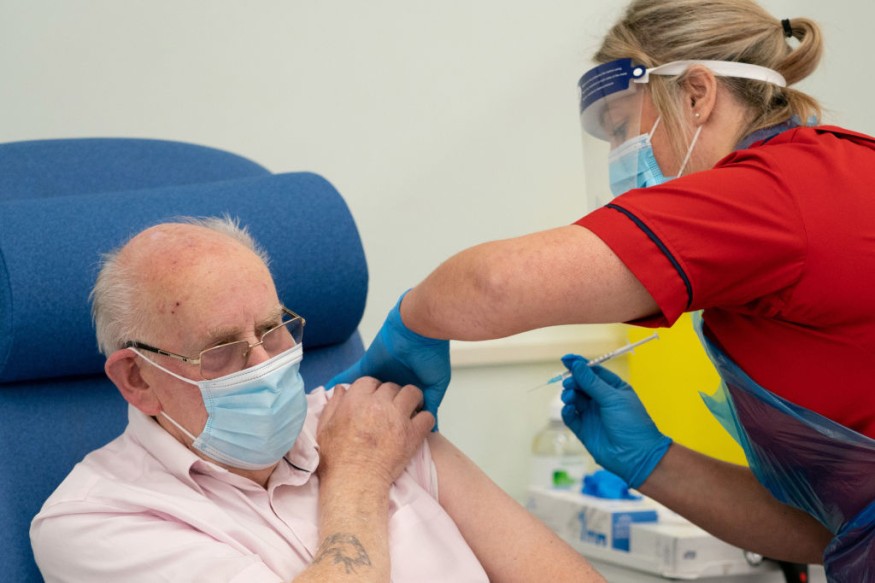An adverse reaction to the Pfizer/BioNTech COVID-19 vaccine was experienced by two persons in the UK. This prompted the UK Medicines Regulator earlier this week to provide precautionary recommendations that this vaccination could not be provided to people with a significant history of allergic reactions" for now.
This is a careful step that is necessary. If we learn more about what triggered these reactions, the advice will shift.
Both persons apparently had documented allergies and brought autoinjectors of adrenaline, meaning that they had a recent history of extreme allergic reactions, such as anaphylaxis.
We may not have several more information at this point regarding the documented allergic reactions to the vaccine.
An advisory council to the United States Food and Drug Administration (FDA) has approved the authorization of the Pfizer/BioNTech vaccine for emergency use. It will be the third nation after the UK and Canada to do so if the FDA grants this permission.

How widespread are these reaction types?
There are very severe yet rare allergic reactions to vaccinations, with anaphylaxis happening following about one in million doses of vaccines.
Many responses to vaccinations that have been identified as potential allergic reactions are most definitely not actual allergies.
However, any person should inform their immunization provider about their medical background, including whether they have any documented allergies.
Because nearly all serious allergic reactions arise within 15 minutes of exposure to the trigger, observation of patients for at least 15 minutes after vaccination is popular around the globe.
In Australia, any facility where vaccines are administered is recommended to be fitted with facilities and qualified personnel to detect and manage allergic reactions. This extends to all vaccinations, including vaccines containing COVID-19.
What are the sorts of allergens we are concerned about?
A broad variety of compounds called allergens), including foods and medicines, may be allergic to people. When anyone has a confirmed reaction to the component in vaccination, it might be suggested that they not get the vaccine.
There are no ingredients that commonly induce allergic reactions in the Pfizer/BioNTech COVID-19 vaccine and the full list of ingredients has been released by the UK Medicines Regulator.
The two persons who may have developed an allergic reaction would probably be examined by an allergy/immunology expert following the Pfizer vaccine. They would be unable to be offered the second dose of the vaccine if they discovered out they really have anaphylaxis.
However, in certain circumstances, patients who have experienced adverse responses following a single dose should have a specialized approach to administer multiple vaccines. For any COVID-19 vaccine, this method has not yet been published.
Are clinical experiments not meant to pick up questions like this?
The late-stage clinical study for this vaccination did not involve patients with a history of a severe allergic reaction to a vaccine or any component in the Pfizer/BioNTech vaccine.
This is a measure intended to safeguard the wellbeing of participants in the experiment. Clinical studies typically concentrate on safe patients without significant medical problems. However, the phase 2/3 Pfizer study allowed individuals with stable pre-existing chronic conditions to be admitted.
When the effectiveness and efficacy of vaccines are well known in healthy individuals, experts may also administer the vaccine to those with serious underlying medical conditions.
This research involves more than 40,000 participants and without significant safety issues, has proven the vaccine to be effective and well accepted. In the vaccinated population, the frequency of allergic-type reactions following injection was marginally higher at 0.63% relative to the placebo group at 0.51%. Although it is not known if this small discrepancy is attributable to chance.
What are the consequences for those with serious allergies?
As for the repercussions of this latest news for those with major allergies, it is too early to say. If these incidents were genuine allergic reactions, we really don't know.
There is still no statistical basis to believe that COVID-19 vaccinations are more widely used for allergic reactions than for other vaccines, including those utilizing newer technology.
Individuals can also review their personal records and any background of allergies with their vaccine provider.
Check out more news and information on COVID-19 on Science Times.












